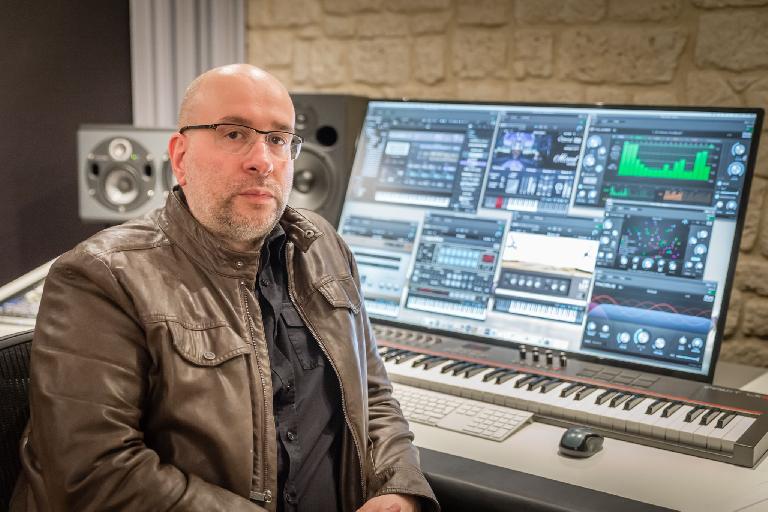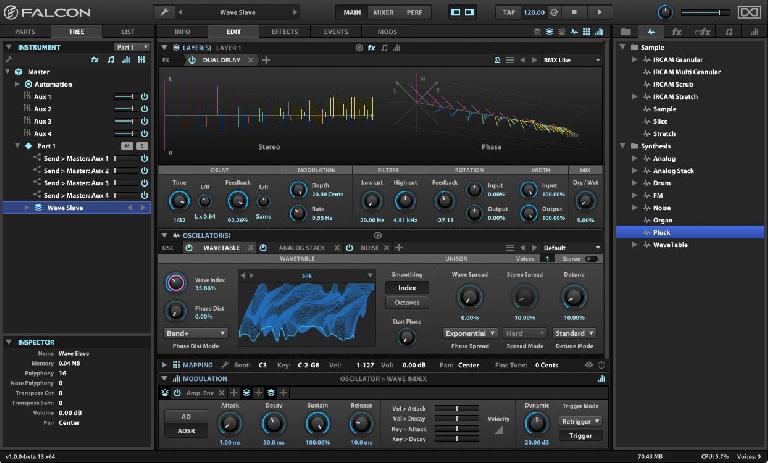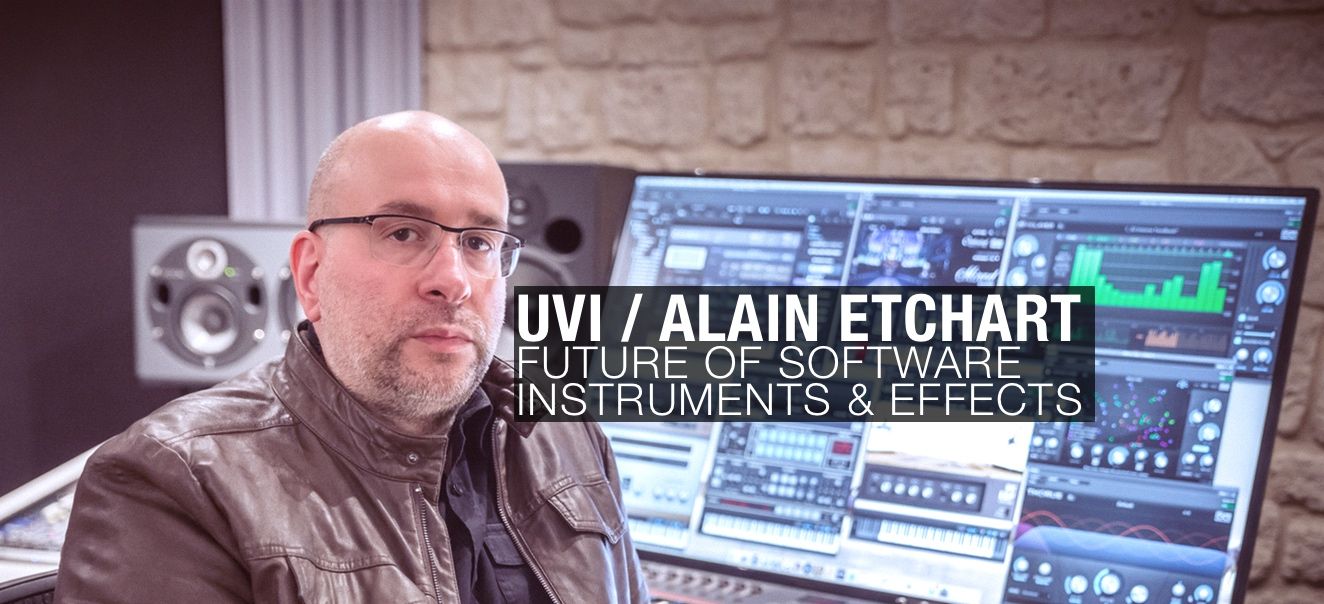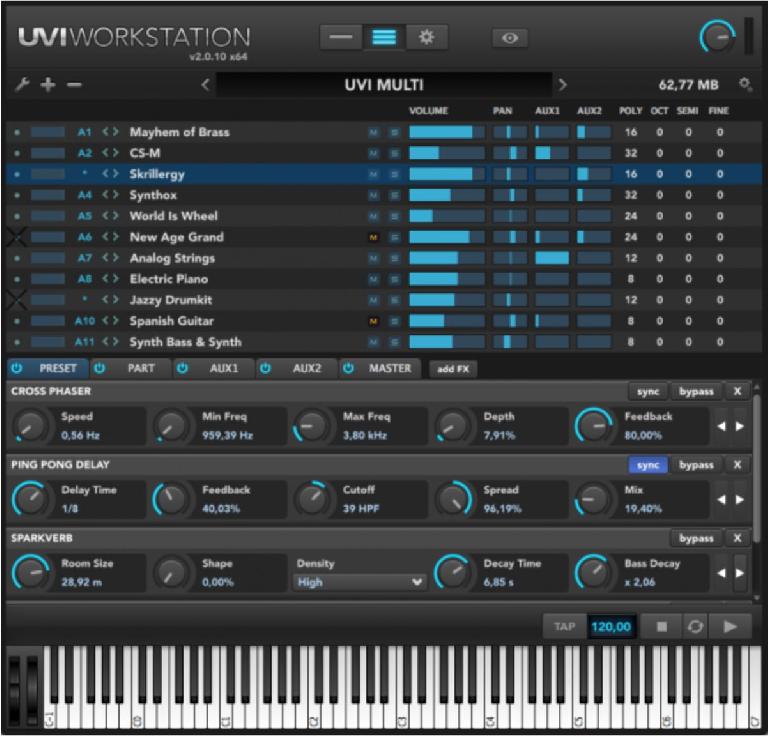UVI are quite a diverse bunch of individuals combining into a brilliant company. UVI’s team have delivered everything from high-quality samples libraries, to fantastic FX plugs, and even a mobile mini DAW.
I was eager to ask them about their future! We spoke to Alain Etchart, UVI founder.
Ask: You have a really impressive library of sampled sounds. I am personally blown away by the quality of the Orchestral Suite. Having already sampled so much, where and what do you plan to sample next?
Alain Etchart: Thanks very much. We have a number of projects we’re working on and we’re excited to share them when the time comes, some very soon. There are so many interesting sounds in the world, I can’t say we’ve ever felt strained for ideas. The challenge is more trying to distill them down. You look for things that are novel, things that fill a void, things that can be improved upon, and most importantly you look for the things that you’re really inspired to build as that basic motivation can often translate into work that you’ll be happy with for a long time. This is something we’re open to feedback on as well, so if you or any of the readers out there have requests please let us know. We aren’t able to respond to every suggestion directly of course, but we’re definitely listening.

There are so many interesting sounds in the world, I can’t say we’ve ever felt strained for ideas. The challenge is more trying to distill them down.
On the topic of sampling, as a company is there something that you prefer; coding VST or sampling analog gear?
As a company, no. On a personal level within the company we have our own specialties and preferences, but as a company these are simply tools and ones that are often quite sympathetic. Whether we approach a project with one, the other or both depends on a number of factors, but generally it comes down to which is most appropriate to the vision we’re trying to realize and that’s a case-by-case decision. For example, sometimes you can find a striking sound with a particular keyboard and you might think “this sounds amazing, I should model this straight away”, but maybe that signal is traveling through cables, transformers, a juicy preamp, compressor and so forth, then a focused modeling of the keyboard in isolation could be missing some very important information and often those things aren’t obviously quantifiable. In the case of Falcon, it’s very much been developed to facilitate both. Instead of a fixed either-or it’s this fascinating question of how can I use all of these tools together.
The UVI Workstation is an impressive piece of kit. Are there any future plans for expansion that you would like to share?
We have an extensive roadmap planned and we’re both excited and working hard to keep the updates rolling out. We’re not ready to make any big announcements at the moment, these productions require a lot of evaluation and we want to be sure that things are fairly bulletproof before priming anyone’s appetite, but there are definitely goodies in the pipe.
How do you balance between baseline hardware capabilities and supplying the highest quality VST & VSTi?
It’s a challenge for sure. I suppose for us we try to maintain that balance as well as possible. You want the sound quality to be paramount, of course, but that has to be done within reason. In some instances, it’s a compromise you have to make. In some instances, as with Falcon, it’s a choice you can let the user decide for themselves. And in very rare cases, as with Sparkverb, you get the best of both worlds.
We’ve got Ableton Link working in BeatHawk and that’s been fantastic.
BeatHawk is yet another impressive piece of software. As smaller and smaller devices become more prevalent and more powerful what kind of future do you see in terms of such things in relation to digital audio production?
An explosion of cheap and powerful CPUs and GPUs can open a lot of doors, and that can translate to audio production in manifold ways–some of those we see and use today and others are yet to come. These are inherently different devices than desktop workstations, both in capability and how you interact with them. They will certainly get more powerful over time but the ways in which we use things parallels their form, a sketchpad versus an easel, for example. In that way I think what we’ll see is more evolution than revolution, enhancement than replacement. You can create finished tracks entirely within BeatHawk if you want to, but in context of all of today’s tools it’s most powerful as a sketchpad. It gives you a focused workflow to help get ideas down quickly no matter where you are and leaves you with high-quality audio and MIDI that can seamlessly translate into your DAW workflow. It leverages the form and strengths of a mobile device with consideration of your existing workflow.

Are there any advances in technology that have you excited to try and integrate into your software?
What we’re starting to see with VR technologies like Google’s Tilt Brush carry a lot of exciting implications for sound design, but these things are still very much in their infancy. Looking at the short game we’ve got Ableton Link working in BeatHawk and that’s been fantastic, that should be shipping in a big update later this year.
VR technologies like Google’s Tilt Brush carry a lot of exciting implications for sound design
Is there anything you might like to share from your expansive experience with the future generation of VST & VSTi developers? Maybe where they should focus their energies or stay away from? Any stories of triumph or tragedy to speak of?
Follow your passions. It’s a long haul and if you aren’t passionate about what you’re doing you’ll find yourself struggling for motivation and endurance.
Let your visions adapt. The world, our lives, technology, they’re all constantly changing. Keep your eyes open and don’t be afraid to pivot. Better to bend than break.
Listen intently to feedback, but dig deeper. There can be many solutions to a particular problem. The deeper you dig the more valuable your solutions will be.
Do you see the iLok technology as helping to curb piracy?
It’s an unfortunate reality, but it’s been a decent solution for us.
Finally, is there anything we should keep an eye out for in the near to far future from the good people at UVI?
Absolutely, we’ve got a number of new libraries coming, some big updates, a new version of BeatHawk and new effects in the pipe. We’re excited to share more details as they’re available, so stay tuned!
Read reviews of UVI instrument and effect plugins here.
Web: UVI Website





